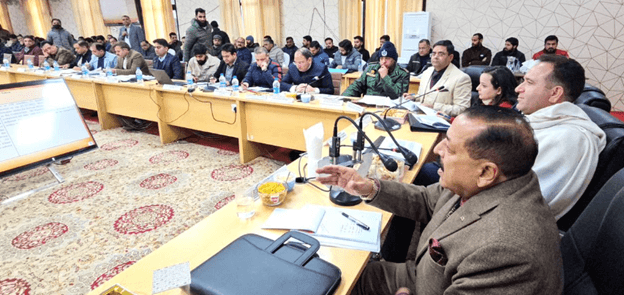Define food security, says report

India has the capacity to become the food factory of the world as it has yet to achieve the yield potential of crops, said Food Processing Industries Minister Harsimrat Kaur Badal.
India, along with China and Indonesia, also need a body to represent as the three countries will collectively address the issue of fixing Asia’s food systems in a holistic manner.
Stating this, Badal said the three countries will have the provision of energy-dense, nutritious, safe and affordable food in Asia which will be home to half of the world’s urban population by 2030.
The stakeholders need to take a pledge for ‘zero tolerance’ on food wastage, said Badal at the launch of Economic Intelligence Unit’s (EIU) Report on Fixing Asia’s Food System.
The report launch was organized by the Federation of Indian Chambers of Commerce and Industry and Cargill as well as EIU in New Delhi on 11 Sept 2018.
The report gives the perspective of businesses on what the food scenario looks like in Asia, said Siraj Chaudhry, Chairman, Cargill India and former Chair of FICCI’s Food Processing Committee.
The key megatrends are urbanisation, the double burden of under-nutrition and obesity, technology constraints, need for transparency and sustainability and politics, he said.
The report lists the opportunities and challenges for policymakers and the private sector in managing these trends.
These include defining food security more holistically to cope with structural changes in food demand and supply; predicting and anticipating the convergence of trends for early policy development and assessing spill-over effects; enhancing national capacity in monitoring food system metrics and natural resources and strategizing by anticipating the convergence and divergence of trends in each market.
The research shows that business leaders overwhelmingly agree that there is cause for alarm around Asia’s food security.
The solutions include greater collaboration to enforce food safety standards, educate farmers and improve supply chain infrastructure.
Yet a number of other factors-including differing regulations, border policies, import duties, taxes, food cultures, self-sufficiency programmes and uneven economic development-require more robust thinking and policy solutions for Asia’s food system to truly make the needed progress.
The report notes that with Asian cities set to expand by 578 million people by 2030 and up to 85% of the increase in the global middle class expected to come from Asia, urbanisation will have significant effects on food production and demand in the region.
China, India and Indonesia alone will account for 75% of Asia’s total population and 60% of its real GDP by 2030.
Income growth in Asia will continue to drive the transition away from direct consumption of cereals and towards more diverse diet.
Dairy products and eggs account for a larger proportion of calories consumed in India (6%) and China (4%) than in Indonesia (1%).
India has a strong vegetarian culture, but projections estimate that India’s meat consumption (mainly chicken and fish at 63%) will rise to 9 kg by 2050, from a base of 3 kg. fiinews.com









